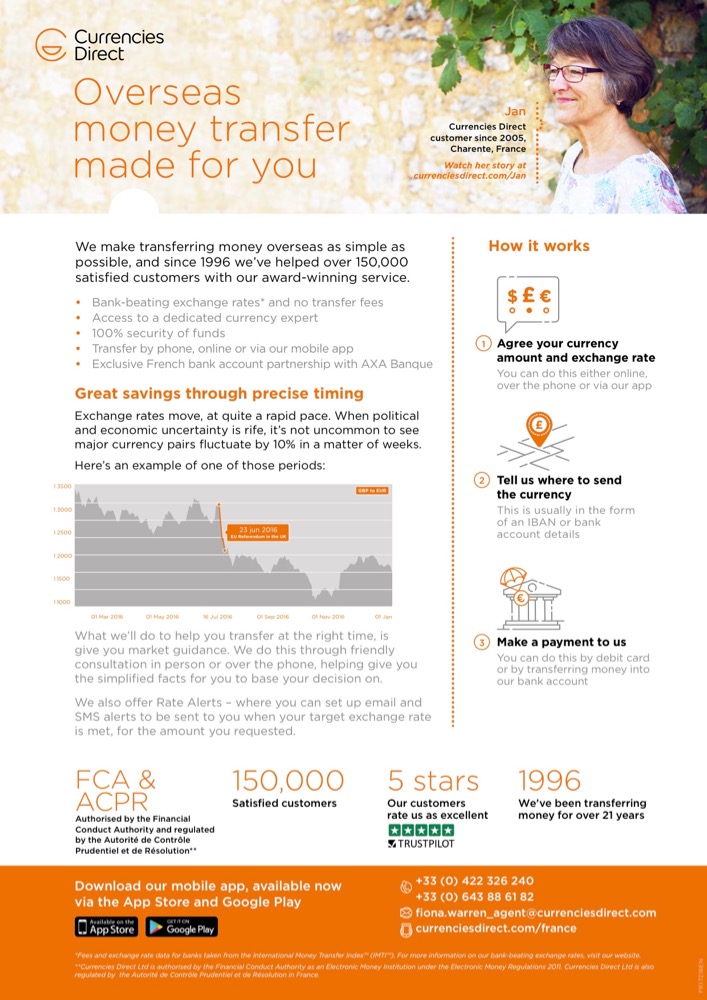WEDNESDAY 12 APRIL 2017
Wednesday’s UK wage data turned out to be slightly better than forecast, so the pound enjoyed a fairly strong day of trading.
The GBP/USD exchange rate finally pushed above the key $1.25 level (hitting a high of $1.2575). Meanwhile, GBP/EUR held €1.1750 and GBP/AUD struck a new two-month high of AU$1.6710.
GBP/NZD climbed a cent over the course of trading, pushing all the way to a seven-month best of NZ$1.8070.
The pound wasn’t able to come out on top against the Canadian dollar however, with the BoC interest rate decision leaving GBP/CAD trading in the region of C$1.6613.
What can we expect from the currency market ahead of the four-day weekend?

What’s been happening?
Yesterday’s pound gains were largely the result of the UK’s latest jobs data showing a slightly stronger-than-forecast increase in average earnings. Average earnings including bonuses increased by 2.3% rather than the 2.2% expected. Wages excluding bonuses were up 2.2% rather than 2.1%.
However, the pound’s advances were a little timid in light of the fact that the UK added fewer positions than expected in the three months through February. The employment change of 39k was almost half the 70k job increase anticipated.
Later in the day the GBP/USD exchange rate was able to push higher as US President Donald Trump sent the US dollar reeling.
Trump asserted; ‘I think our dollar is getting too strong, and partially that’s my fault because people have confidence in me. But that’s hurting – that will hurt ultimately […] It’s very, very had to compete when you have a strong dollar and other countries are devaluing their currency.’
Hints that the US should maintain a policy of low interest rates contributed to the evaporation of demand for the US dollar and allowed higher-risk currencies (like the Australian and New Zealand dollars) to climb.
We’re here to talk currency whenever you need us, so get in touch if you want to know more about the latest news or how it could impact your currency transfers.
What’s coming up?
There isn’t much on the data calendar with the potential to inspire significant currency movement today, so the pound may be able to close out trading ahead of the four-day weekend in a stronger position against many of its currency rivals.
If German inflation is confirmed at 0.2% on the month and 1.5% on the year in March, GBP/EUR could firm slightly amid bets that the European Central Bank (ECB) will refrain from making any changes to monetary policy for the foreseeable future.
Similarly, GBP/USD may consolidate its position above $1.25 if the University of Michigan Confidence index dips from 96.9 to 96.6.
The main UK causes of pound movement next week are likely to be the Rightmove House Price report and retail sales numbers for March. A drop in consumer spending would be pound-negative.
Although the Eurozone is set to publish final inflation figures, consumer confidence data and preliminary services, manufacturing and composite PMIs, the euro may prove more reactive to the latest developments in the French Presidential election.
In terms of US news, the nation’s housing and industrial/manufacturing stats could be the main market-movers. Reports which support the case in favour of a June rate hike from the Fed would be US dollar supportive.

